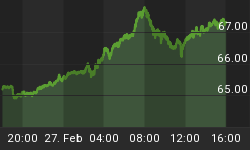An ill wind swept through Wall Street last week, seeping into trading rooms, cubicles, and offices on every floor. All of a sudden, people began to feel anxious and afraid. After years of dreaming about how much they would make, people started worrying about how much they might lose. In a matter of days, the notion of risk had been transformed from a hypothetical concept to a potentially lethal reality.
Signs of a sea change were everywhere. Investors rejected buyout-related debt from companies like U.S. Foodservice and investment banks were left holding the bag. Several firms, including Catalyst Paper Corp and Magnum, dropped plans to issue junk bonds, citing "adverse" conditions. South Korea's Kia Motors, Netherlands' Arcelor Mittal, and others pulled offerings amid an abrupt shift in favor of less risky alternatives.
As investors balked at terms that would have been warmly welcomed only weeks before, the pace of mergers and acquisitions slowed. That, in turn, spurred anxious bankers to turn up the heat. They warned portfolio managers that those "'who [refused] to take their "fair share" of ... troubled deals [would] face reduced allocations on good deals in the future,' ... recalling tactics employed by Drexel Burnham Lambert in the latter days of its reign over the junk bond market in 1989," noted Barron's, citing analyst Martin Fridson.
Meanwhile, the once burgeoning market for collateralized debt obligations, or CDOs, slowed to a near standstill. Activity was stymied by the meltdown in the subprime finance sector and the collateral damage at two Bear Stearns hedge funds. Sizeable losses at Caliber Global Investments, a $900 million hedge fund, forced it to shut its doors. According to Barron's, dealers also cut back "on making markets in high-yield paper because of the capital they [had] tied up in bridge loans and problematic mortgage paper."
Risk spreads ratcheted higher across the board. A late-week burst of buying in Treasury bonds suggested that money managers were seeking safer shores in the run-up to a new quarter. Although major stock averages were hardly changed, trouble lurked below the surface. Banks, brokerages, and other financial shares continued to fare poorly. The volatility index, or VIX, remained elevated, despite relatively flat markets and the onset of a holiday-shortened week. Breadth and momentum flagged, in contrast to the usual cheerleading that all was well.
Uncertainty about what shoe might drop next contributed to the unfamiliar shift in sentiment. So did a fear of losses -- and of lost bonuses, lost jobs, and lost reputations. Although most Wall Streeters knew it was only a matter of time before the jig was up, hubris and denial had lulled them, time and again, into thinking that nothing would happen until "next year." But with one major operator experiencing problems and rumblings about others, the day of reckoning suddenly seemed a whole lot closer.
Until recently, Wall Street's movers-and-shakers thought they had all the answers. Now, everyone -- including risk managers, regulators, and reporters -- was asking a lot of questions. How many others had similar problems? Who else held securities that were at risk? What would happen if other firms revealed that they, too, had bet wrong and would be taking large hits? People started turning all sorts of rocks over, looking for potentially nasty surprises.
Yet despite the clamor for more information, many were clamming up. Some were trying to maintain the pretense that all was well, or they were stalling in the hope that recent troubles would somehow go away. Others feared what might happen if the truth about what was being discussed behind closed doors came to light. Rumors started to fly about hedge fund liquidations and margin calls. In the absence of hard data, some began to fear the worst.
In no time at all, it seems, things are looking much different than they were. Suddenly, there is the smell of contagion in the air.















